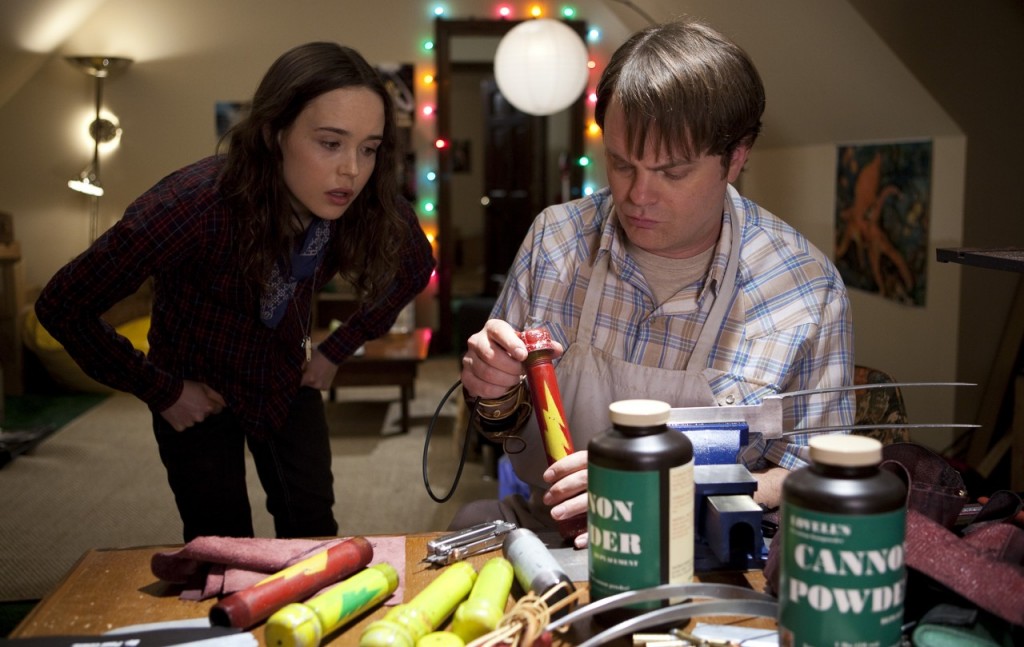Culture
The dark side of “Super”heroes

Super
dir. James Gunn
Release Date: Apr 08, 11
- 1
- 2
- 3
- 4
- 5
- 6
- 7
- 8
- 9
- 10
“Shut up, crime!” Such is the rallying cry of the Crimson Bolt, or as nobody seems to know him, Frank (Rainn Wilson). Super is the tale of Frank’s strange descent into a world of superheroes and real-life villains, and if “descent” seems like the wrong word to use, then it’s probably wise to prepare yourself for writer-director James Gunn’s bizarre, brutal slice of comic-book revisionism. Where most heroes have a traumatic incident that ignites their yen for justice, Frank’s jumping point is one of two moments in his life that actually made him happy: pointing the police in the direction of a purse snatcher.
The other was the day he married Sarah (Liv Tyler), but whatever sustaining happiness he gets from her is stolen away by Jacques (Kevin Bacon, having a ball), a charismatic drug dealer. Sarah took to Frank mostly because he lived thoroughly on the wagon, and it doesn’t take much for Jacques to pull her off. Miserable and alone, Frank is inspired to sew together a crude costume and become the Crimson Bolt. Wilson is perfect for Frank, as his general comic persona is that of a man whose pathetic, childish countenance is in disharmony with his towering stature. Frank is a profoundly sad man, rife with religious guilt and the dejected manner of someone who’s spent the majority of his life suffering quietly, and Wilson breaks your heart with every sad-eyed glance.
Armed with a plumber’s wrench, the Crimson Bolt becomes a sadistic vigilante, beaning anybody who crosses his path, whether they’re committing murder or just cutting in line at the movie theater. More than any other recent film depicting everyday people becoming self-styled “heroes,” Super doesn’t hide from the fact that Frank is a sociopath. This becomes even more obvious when Libby (Ellen Page) comes into his life as an overenthusiastic comic store clerk who demands to become the Bolt’s sidekick, Boltie. Wilson and Page have amazing chemistry, and the film is at its best when it manages to find genuine pathos in the connection of two very broken people with some inherently skewed notions of how to define right and wrong.
Unfortunately, like a lot of modernist superhero mythology, Super takes the climactic burst of wish-fulfillment violence too far over the top. Particularly in a film which plays its violence as ground-level gritty as this one does, a lot about the film’s final twenty minutes is sobering, and not in the way that Gunn probably intended. That said, Wilson puts it over with a heartwrenching coda, and the comedy in the early part of the film is so dark anyway that the full-blown dive into tonal blackness at the end isn’t quite as jarring as, say, the finale of Kick-Ass. Super cuts itself off just short of reaching greatness, but it’s definitely memorable, and it’s guaranteed to be unlike any superhero movie you’ve ever seen.